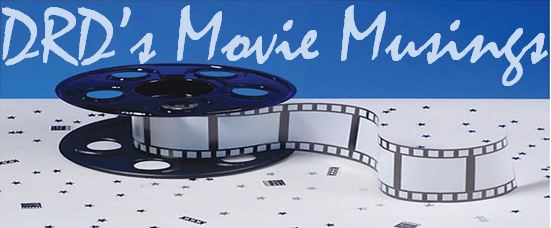"Redemption" is the grand theme of Pulp Fiction, and no discussion of Pulp Fiction's treatment of redemption (this being the 4th installment exploring the treatment) is
complete without recognizing the saviour-type that Quentin Tarantino presents,
who is none other than Winston Wolf.
I fully appreciate that some people might be uncomfortable with the idea of using gangster stories to portray Jesus or aspects of the salvation relationship; or, if that's not what Tarantino intended, then they might be uncomfortable with my interpreting the movie in this manner.
I wouldn't presume to challenge you by saying "hey, what did you expect from DRD's Movie Musings? This ain't yo' mamma's prayer meeting"(although, by saying I won't say it, I just did, didn't I?)
But, I will challenge you to read on, and then you tell us what you think.
I fully appreciate that some people might be uncomfortable with the idea of using gangster stories to portray Jesus or aspects of the salvation relationship; or, if that's not what Tarantino intended, then they might be uncomfortable with my interpreting the movie in this manner.
I wouldn't presume to challenge you by saying "hey, what did you expect from DRD's Movie Musings? This ain't yo' mamma's prayer meeting"(although, by saying I won't say it, I just did, didn't I?)
But, I will challenge you to read on, and then you tell us what you think.
Once at Jimmy's house, Jules calls his boss, Marcellus Wallace, for help. After discussing some issues, Jules finally reasserts the urgency of the situation and Marcellus - calm, cool and collected - says he's sending Vincent Wolfe, to which Jules replies "You're sending 'the Wolf'?" with relief and a new sense of ease. "That's all you had to say."
Meanwhile, the Wolf is at some social function when he gets the call from Marcellus. He gets the information and location and utters "It's thirty minutes away, I'll be there in ten." Cut to the next scene where an Acura NSX approaches a camera at car-tire level with the following words on-screen: "Nine minutes and thirty-seven seconds later." What's the purpose of this? Tarantino is showing that the Marcellus sends the Wolf "in the fullness of time," which I take to be a direct nod to Galatians 4:4. But, there's more.
Winston is "like them," (in this case, with a criminal element) which nods to the "born of woman, born under the law" part of the text with respect to how Jesus was human like us. When Winston arrives, he introduces himself to Jimmy as "I'm Winston Wolf, I solve problems." He gives Jules and Vincent instructions for cleaning up the car, showing that they must participate in their redemption; he also removes their dirty clothes ("filthy rags") which are covered in blood, and gives them some new clothes (robes of cleanness/righteousness) to wear.
So, Jules calls on Marcellus, who "sends" the Wolf to "clean up Jules' and Vincent's mess." Kinda like how the Father sent The Son to clean up the mess of sin on earth. Wait, there's more.
One last point - even though both Jules and Vincent are cleaned up and their sin is covered up by the Wolf, we know that, ultimately, Vincent is headed for a non-ideal demise. It simply goes to illustrate that, while the Wolf/saviour-type did what he did for both of them, it was still up to each of them to live on in the light of what had occurred, or not. Of course, Jules had already declared that his eyes were wide open so that he could not go back to living in darkness; Vincent, on the other hand, was determined to dismiss the intervention of God back at the apartment and thus could partially benefit from the redemptive work of the Wolf while not fully being able to escape "the life" and make a transition to a higher calling.
So, was this "reaching"? I don't think so at all. With continued exploration of the Hollywood saviour-type, we'll see portrayals of half-human/half vampire; half-human/half-computer program, and other interpretations...the issue is that the saviour-type is a hybrid that shares some of the human experience along with some other/different/higher/unhuman nature; the combination of the two in one is the platform for the redemptive capabilities; and when we see sufficient touch-points to identify the movie as speaking to the saviour-type theme, we've got to call it.
It should also be noted that the comparison isn't connected down to every last detail. That would not only be too obvious, but it would also lack sophistication of a crafted, fictional story - after all, Winston Wolfe is but a "saviour-type," which doesn't require a perfect copy of the entire gospel story; it only requires sufficient touch-points that fit the story and capture the essence of the role.
----------------------
Go back to
- Installment 1 - Trying hard to be the shepherd: Pulp Fiction and Redemption
Installment 5 - Brett and Marvin: Pulp Fiction and the (skill-testing) question













No comments:
Post a Comment
What do you think?!